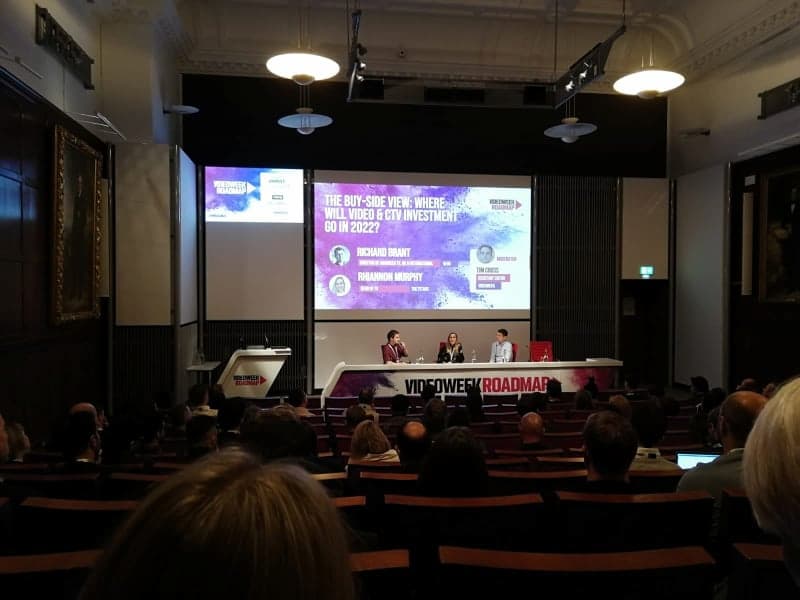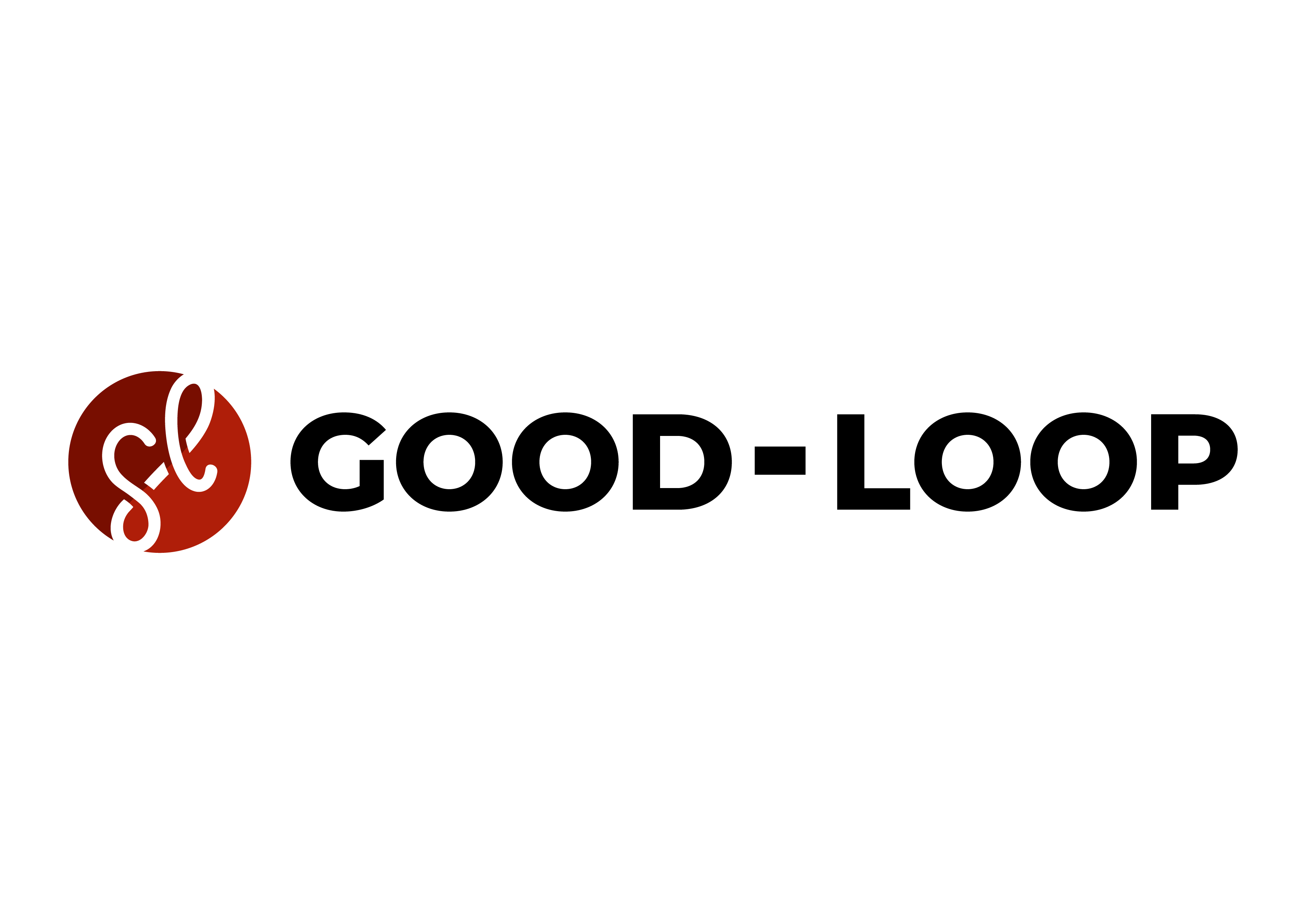I recently had the opportunity to attend VideoWeek Roadmap 2022. Held on November 24th, the event was a discussion on the future of Video and CTV. Roadmap 2022 was attended by a mixture of agencies, brands, ad tech providers, broadcasters and more. As an ethical ad-tech provider looking to keep up with the latest industry developments, we at Good-Loop were keen to hear from others in our field about their successes & the challenges they faced in 2021, as well as their outlook for next year.
The day kicked off with a brief introduction from VideoWeek's editor-in-chief, Vincent Flood. Reflecting on the previous couple of years, he highlighted that while the pandemic had caused a significant disruption to the industry and the broader world economy, it has also created unique opportunities in the video and CTV space. He cited a 'renaissance' for the UK TV industry, with ITV set to report a record year of ad revenues in 2021 and the rumour of a potential future unification of UK broadcasters. More broadly, he referenced an incremental growth in US CTV ad spend across major platforms, and projections for this growth to accelerate into 2022/2023.
This was followed by a round table discussion on the topic of CTV. 7Stars' Head of TV, Rhiannon Murphy, neatly outlined the benefits of the format and the challenges faced from agency-side. For brands willing to experiment, CTV provides advertisers with a unique avenue to reach their users within an emerging, premium, highly-relevant marketplace. However, key challenges such as a lack of measurability still act as barriers to entry for the format. The difficulties with accurately measuring user frequency, reach, attribution etc. for CTV campaigns can make the format less attractive than more traditional digital formats. These measurability struggles, coupled with higher CPMs, have contributed to elevated levels of ad fraud for the channel, compounding the issue of advertiser take-up.

Ultimately, the format will see greatly mainstream adoption once these brand safety issues are cleared up. Until reliable solutions are developed, there will be many advertisers who opt to withhold and/or divert their ad spend to other channels. This sentiment was mirrored in a later panel featuring Pubmatic's Hitesh Bhatt (Director of Publisher Development for CTV/OTT), who stated that the format has high potential if a similar level of safety and comfort around CTV/OTT advertising can be created.
The subsequent keynote from Unruly's Alex Khan put forward a potential solution to the conversion attribution for CTV formats: QR codes that link to a product brochure, shopping cart, promotional coupon or the app store. He also emphasised the importance of utilizing bespoke creative tailored to the device the user experiences it on, cautioning against the blanket repurposing of creative across all devices and to be mindful of the user experience.
One of the most interesting keynotes of the day came from Arete Research, a tech equity research firm. Founder Richard Kramer shared his analysis, making some bold predictions on the future of the industry, the domination (and predicted continued dominance) of the marketplace by big tech, government regulation, walled gardens, measurement, identity solutions and more. It was an expansive and entertaining keynote, and it was fascinating to get the perspective on the future of the industry from an external - but knowledgeable, opinionated and well-researched - voice. The slides were brimming with information (almost to the point of overflow), and I found myself frantically taking notes and photos. I'll admit it was quite a relief when slides were circulated post-conference and I was able to dig into them more deeply!
The morning sessions concluded with a publisher's panel, discussing the future following the pandemic-induced slump. Many of the discussions focused on the topic of user privacy: PWC's Stephanie Claxton highlighted that consent-management tools have put publishers in a strong position to shape the privacy discussion, but an overabundance of solutions has understandably caused confusion on how to best proceed. Piers North (CRO, Reach) stressed the importance of ad relevancy as a way of offering value to both advertisers and end users. The panel concluded that the way forward for publishers may be to form closer, trusted direct partnerships with the brands they work with, and that ad relevancy is the correct way to frame the privacy/data sharing conversation with end users.
The afternoon discussions saw a continuation in the topic of privacy. Greg Mroczkowski (IAB Europe) spoke about the EU marketplace, the DSA (Digital Services Act) and the possibility of stricter future measures against targeted advertising in the EU - a complicated subject, but one that could have significant ramifications for the digital advertising landscape.
A final keynote from Digital Element, an IP geo-location solutions provider, examined the future of IP location targeting and how Apple are working to improve accuracy of its location targeting while prioritising user privacy through Apple Private Relay. The speaker also gave some chilling insights on VPNs and how they use your data. Though I am not a habitual user of VPNs, I'll certainly think twice the next time I consider using one so I can watch that region-locked TV show.
We briefly heard from ViacomCBS about their partnership with Sky Cinema and planned Europe expansion of Paramount+ in 2022. The day closed out with a final panel discussion featuring speakers from The Telegraph and DCMN on identity solutions, moderated by Exchangewire's Ciarán O'Kane.
Overall, VideoWeek Roadmap 2022 made for an enjoyable and thought-provoking day. It was great to hear from the broad range of delegates who presented a diversity of opinions and perspectives, and the event provoked interesting discussions on how we should combat some of our industry's biggest challenges.
There are exciting developments like CTV/OTT advertising that show many promises, but reticent advertisers will steer clear until proper sanitization and measurement tools are in place. Publishers are in a powerful position but they must take ownership of their responsibility to efficiently manage user consent. Indicators point to a future of potential consolidation in the market. Premium, effective solutions that can cater to the rising demand for proper accountability, privacy and brand safety should be well-positioned to succeed, meanwhile other options may find themselves gradually swept away.
My key takeaway from the event was something we at Good-Loop have been shouting from the rooftops: the industry must clean up its act.

